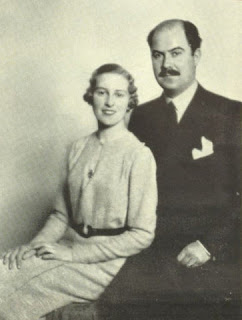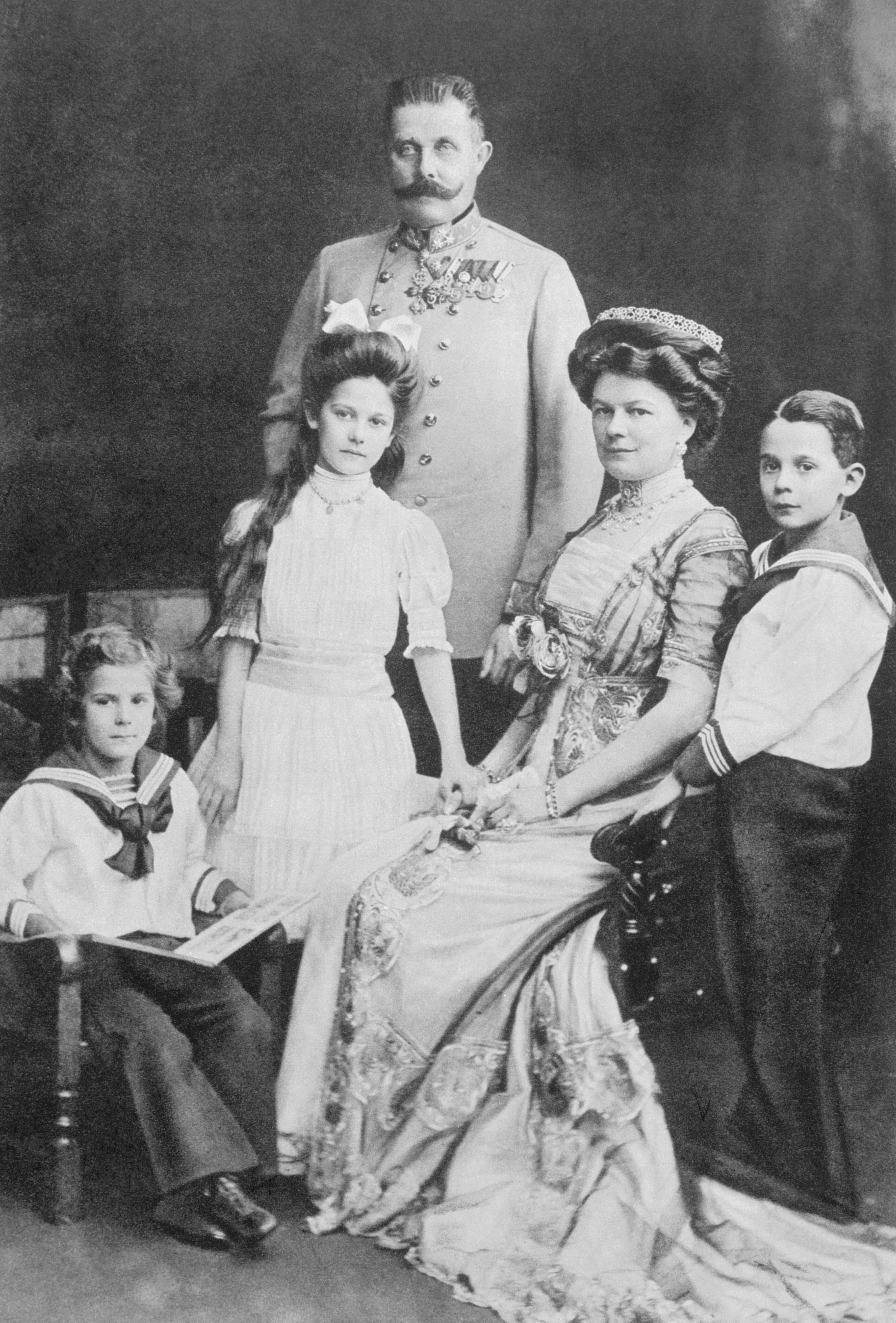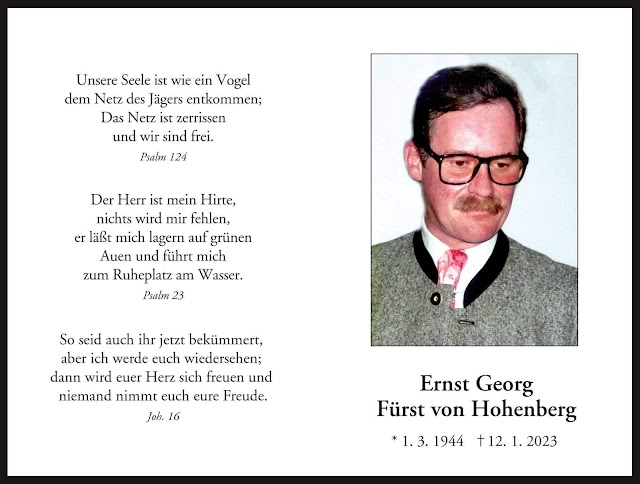Fürst Ernst Georg von Hohenberg, the last surviving grandson of Archduke Franz Ferdinand of Austria and Duchess Sophie von Hohenberg, passed away on January 12, 2023, at the age of 78. Born on March 1, 1944, in Vienna, Fürst Ernst was the second son of Fürst Ernst von Hohenberg and Fürstin Marie-Thérèse von Hohenberg. His paternal grandparents, Archduke Franz Ferdinand and Duchess Sophie, were tragically assassinated in Sarajevo on June 28, 1914, leading to the outbreak of World War I. This significant event in history has had a lasting impact on the world, and Fürst Ernst's passing marks the end of an era for the Hohenberg family.
Fürst Ernst's life was marked by significant events and milestones. He married Patricia Annette Caesar in 1973 and had a daughter, Fürstin Eva Anne Marie von Hohenberg, in 1974. The couple divorced in 1999, and Fürst Ernst remarried to Margareta Anna Ndisi in 2007. His life was a testament to the enduring legacy of his grandparents and the historical significance of their story. As the last direct descendant of Archduke Franz Ferdinand, Fürst Ernst's passing serves as a poignant reminder of the enduring impact of historical events on the lives of those who come after.
what were some of Fürst Ernst von Hohenberg's most significant contributions

what were Fürst Ernst von Hohenberg's contributions to Austrian culture
- Preservation of Family History: As the last surviving grandson of Archduke Franz Ferdinand, Fürst Ernst played a crucial role in preserving the family's history and legacy. He maintained the family's estates and properties, ensuring that their cultural and historical significance were preserved for future generations.
- Support for Austrian Heritage: Through his family's historical connections, Fürst Ernst was deeply involved in promoting Austrian heritage and culture. His family's legacy, including the tragic events surrounding Archduke Franz Ferdinand's assassination, continues to be an important part of Austria's cultural identity.
- Personal Life and Family: Fürst Ernst's personal life and family were also significant contributors to Austrian culture. His marriage to Patricia Caesar and later to Margareta Anna Ndisi, as well as his daughter Fürstin Eva Anne Marie von Hohenberg's engagements and marriages, reflect the cultural and social dynamics of Austria during the 20th century.
- Community Involvement: Fürst Ernst resided in the hunting castle at Radmer in Styria, Austria, and was actively involved in local community life. His presence in the region helped maintain connections between the Hohenberg family and the local community, fostering a sense of cultural continuity.
- Historical Significance: As the last direct descendant of Archduke Franz Ferdinand, Fürst Ernst's passing marked the end of an era for the Hohenberg family. His life served as a poignant reminder of the enduring impact of historical events on the lives of those who come after, and his legacy continues to shape Austria's cultural narrative.
what were Fürst Ernst von Hohenberg's major achievements in preserving Austrian cultural heritage
- Preservation of Family History: As the last surviving grandson of Archduke Franz Ferdinand, Fürst Ernst played a crucial role in preserving the family's history and legacy. He maintained the family's estates and properties, ensuring that their cultural and historical significance were preserved for future generations.
- Support for Austrian Heritage: Through his family's historical connections, Fürst Ernst was deeply involved in promoting Austrian heritage and culture. His family's legacy, including the tragic events surrounding Archduke Franz Ferdinand's assassination, continues to be an important part of Austria's cultural identity.
- Personal Life and Family: Fürst Ernst's personal life and family were also significant contributors to Austrian culture. His marriage to Patricia Caesar and later to Margareta Anna Ndisi, as well as his daughter Fürstin Eva Anne Marie von Hohenberg's engagements and marriages, reflect the cultural and social dynamics of Austria during the 20th century.
- Community Involvement: Fürst Ernst resided in the hunting castle at Radmer in Styria, Austria, and was actively involved in local community life. His presence in the region helped maintain connections between the Hohenberg family and the local community, fostering a sense of cultural continuity.
- Historical Significance: As the last direct descendant of Archduke Franz Ferdinand, Fürst Ernst's passing marked the end of an era for the Hohenberg family. His life served as a poignant reminder of the enduring impact of historical events on the lives of those who come after, and his legacy continues to shape Austria's cultural narrative.
Fürst Ernst Georg von Hohenberg passed away on 12 January 2023. He was seventy-eight years-old. Ernst was the last surviving grandson of Archduke Franz Ferdinand of Austria and Duchess Sophie von Hohenberg. Now, the only surviving grandchild of Archduke Franz Ferdinand and Duchess Sophie is Fürst Ernst's first cousin, Baroness Sophie von Gudenus (b.1929; née Countess von Nostitz-Rieneck)
 |
| Fürst Ernst and Fürstin Marie-Thérèse. |
Born on 1 March 1944 at Vienna, Fürst Ernst Georg Elemer Albert Josef Antonius Peregrinus Rupertus Maria von Hohenberg was the second son and child of Fürst Ernst von Hohenberg (1904-1954) and Fürstin Marie-Thérèse (1910-1985; née Wood). Ernst joined an older brother, Fürst Franz Ferdinand (1937-1978; married Heide Zechling).
 |
| Franz Ferdinand and Sophie with their three children: Sophie, Maximilian, and Ernst. |
The paternal grandparents of Ernst were Archduke Franz Ferdinand of Austria (1863-1914) and Duchess Sophie von Hohenberg (1868-1914; née Countess Chotek von Chotkow und Wognin). As is well known, the assassination of Franz Ferdinand, then heir to the Austro-Hungarian Empire, and Sophie on 28 June 1914 in Sarajevo was the catalyst that led to World War I. The maternal grandparents of Ernst were Captain George Jervis Wood (1887-1958) and Baroness Rosa Lónyay de Nagy-Lónya et Vásáros-Namény (1888-1971).
On 31 August 1973 at Radmer, Fürst Ernst von Hohenberg married Patricia Annette Caesar (b.1950), the daughter of Arthur M. Caesar and Selma Anne Maguire. Ernst and Patricia celebrated their religious marriage on 2 September 1973. The next year, the couple welcome the birth of their only child, Fürstin Eva Anne Marie von Hohenberg, on 1 December 1974 at Graz. Fürst Ernst and Fürstin Patricia divorced in 1999. Their daughter Furstin Eva married Alessandro Geromella in 2005; the pair divorced in 2008. Eva is now happily engaged to Peter Eduard Meier. In 2007, Fürst Ernst remarried to Margareta Anna Ndisi (b.1959).
Since 1976 until his passing, Fürst Ernst resided in the hunting castle at Radmer in Styria, Austria.
On 28 January 2023, a Requiem Mass for Fürst Ernst von Hohenberg will be held at the Pfarrkirche Artstetten. His burial will be in the vault of Schloss Artstetten on 28 January 2023.
As we conclude our tribute to Fürst Ernst von Hohenberg, we are reminded of the enduring legacy of his grandparents, Archduke Franz Ferdinand and Duchess Sophie von Hohenberg. Their tragic assassination in Sarajevo on June 28, 1914, led to the outbreak of World War I, a pivotal moment in modern history. The Hohenberg family, once a prominent noble family in the Austro-Hungarian Empire, has continued to play a significant role in European history, with Fürst Ernst von Hohenberg being the last surviving grandson of Archduke Franz Ferdinand. His passing marks the end of an era for the Hohenberg family, but their legacy will continue to be felt through the generations to come.
We hope that this article has provided a fitting tribute to Fürst Ernst von Hohenberg and his remarkable family. As we reflect on his life and the historical context in which he lived, we are reminded of the importance of preserving our cultural heritage and honoring the memories of those who have shaped our world. The story of Archduke Franz Ferdinand and Duchess Sophie von Hohenberg serves as a poignant reminder of the enduring impact of historical events on the lives of those who come after. We are grateful for the opportunity to share this story with you and hope that it will continue to inspire future generations to learn from and appreciate the rich history of Europe.



No comments:
Post a Comment